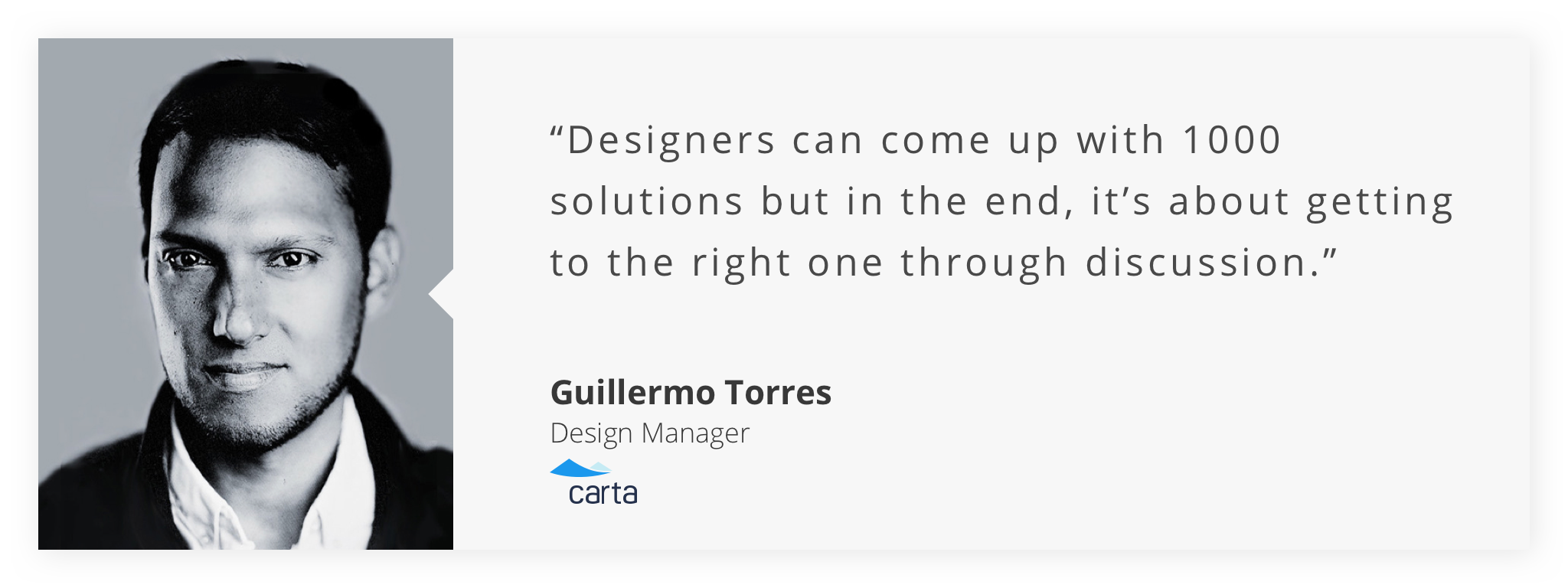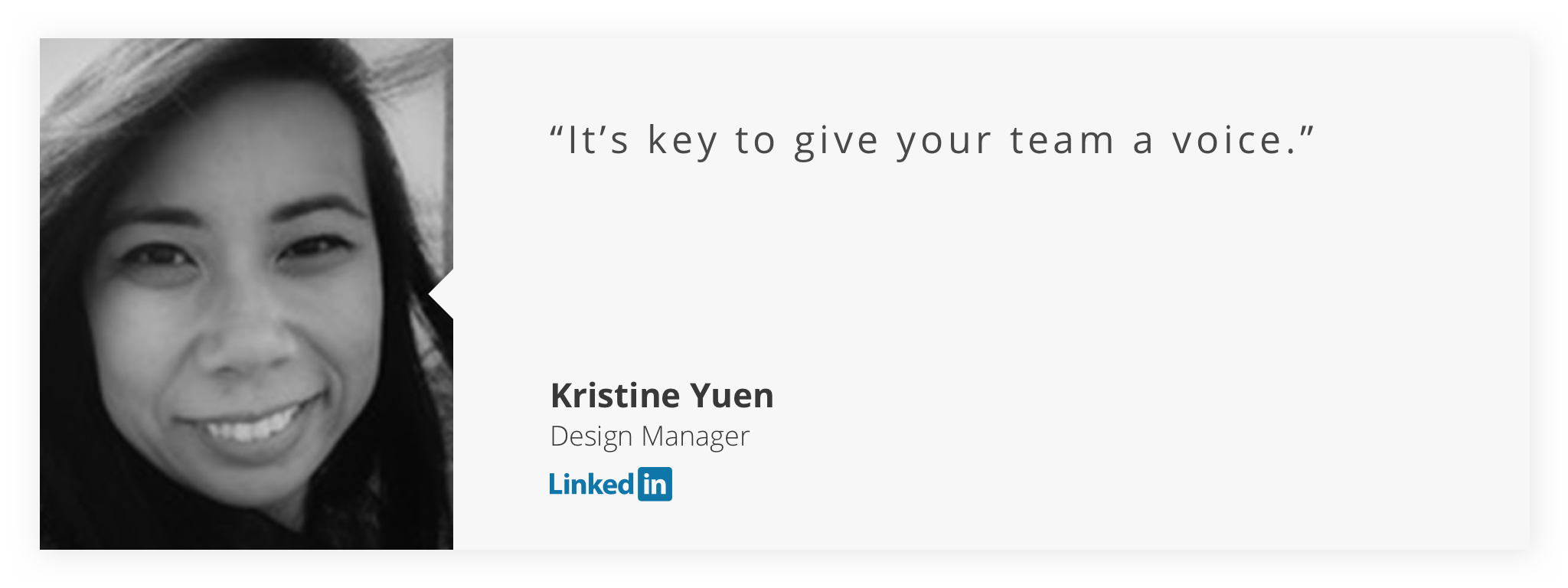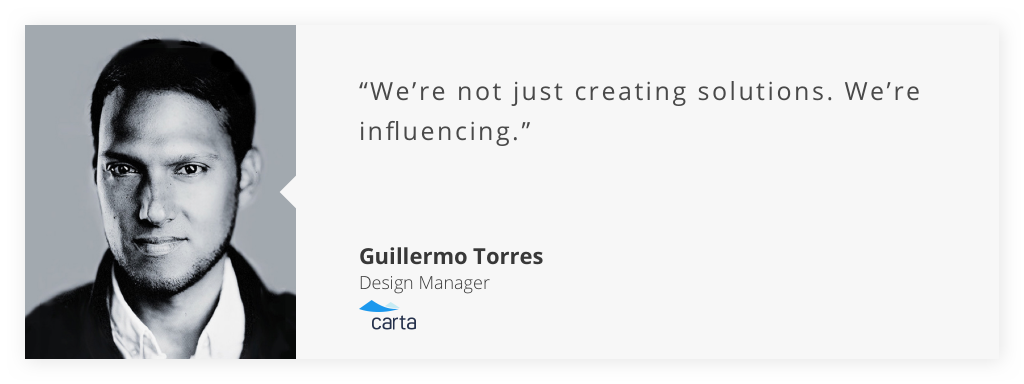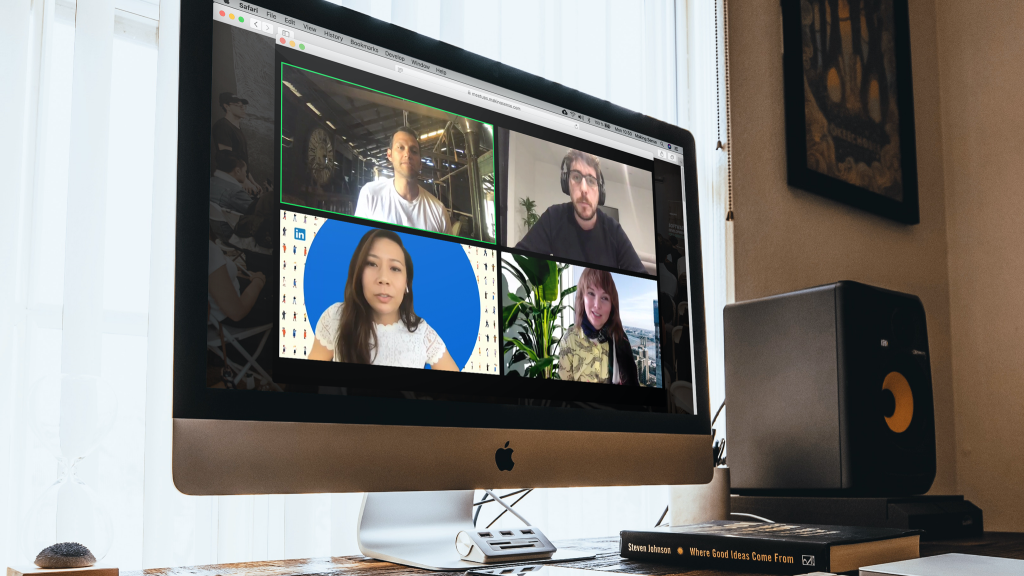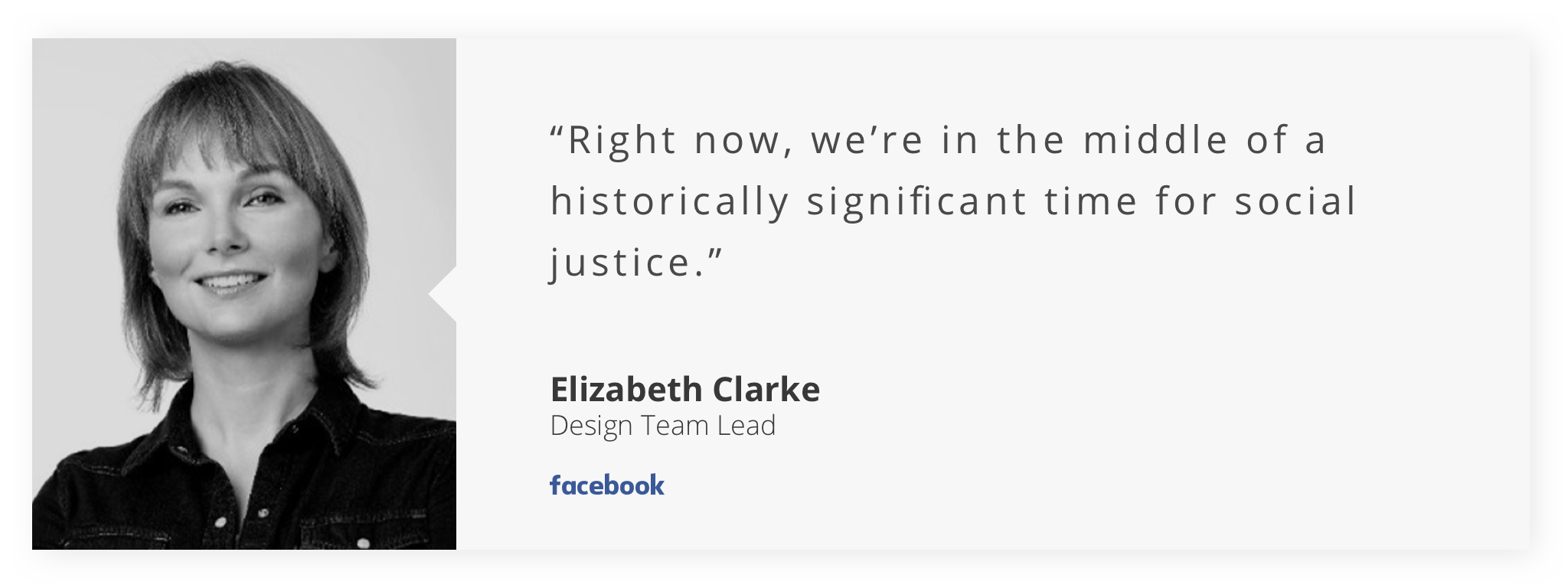In a digital industry, managers face a mix of hurdles ranging from maintaining an efficient development process to selling the product vision to all the stakeholders. These are challenges that were already complex enough, without the complexities leading in the current times can bring.
There’s a lot of heavy stuff happening in the world right now and many of us are wondering, how do leaders take action?
As UX experts they wanna create great experiences, but I think that with the current situation, they must open new doors and better understand other professionals and customers first of all. And it’s important to bring new conversations to the table.
To explore the challenges that managers are facing, we recently held a virtual meetup and invited three distinguished guests, each of whom has a lot of experience managing teams in the UX space:
- Kristine Yuen, Design Manager at LinkedIn
- Elizabeth Clarke, Design Team Lead: SMI Platform & Services at Facebook
- Guillermo Torres, Sr. Design Manager at Carta
Each had fascinating and incredibly useful advice for our audience, based on their experience as they evolved into the current leadership roles they hold. Our moderator: Valentin Zamorano, UX Designer at Making Sense.
“This career is not about being alone”
As it turns out, the skills and traits that our panelists rely on to successfully manage teams are the very same ones that propelled their early careers in UX:
- Presentation/Communication skills (“soft skills”)
- Passion
- The ability to network, get involved, and collaborate
Guillermo crystallized these ideas into a succinct statement, “this career is not about being alone”. When we asked our panelists to tell us a little bit about how they got into UX and what it takes to get into the field, each gave variations on these three themes. And later on, when we asked about managing a remote team, it was the same three ideas again.
1. Soft skills will always be key
When working on a UX team, presentation/communication skills are essential. Guillermo had an interesting take on remote work. A strong team with a good leader will be successful regardless of whether they are remote or not. It’s more about how well they can leverage their soft skills, some of which we’ll outline below.
Communication
Elizabeth noted that presentation skills aren’t about how well you speak the language — it’s not a matter of ESL or being an extrovert or “being an alpha”. It’s about getting your point across and being able to define the problem. This skill will carry you through your career from the early stages where you’re looking for a job, to when you’ve advanced to become a team leader.
Team motivation
Focusing on mental health helps with motivation. It’s so easy to get caught in the cycle of the mundane, not really dedicating time to the team to give them the space to innovate or think about improving processes. Getting together once a month to brainstorm and talk about ideas keeps her team motivated and helps everyone keep a flexible mindset.
Guillermo agrees, noting that it’s so important to carve out time to help your team stay motivated. His designers work on a “three-burner model”:
- Front burner: this gets the most focus
- Back burner: projects that are in the early discovery phase
- A design-led project: for example, at Carta, they are working on defining the UX running guidelines for the company. He tried to make sure his designers don’t feel pressure from other managers and have time for this project.
2. Passion plays a very large role
Your passions give a glimpse into who you are, showing that you are a well-rounded person who can bring innovation to the table — so share them! When hiring, managers look for people who are able to think and fall in love with a problem. Passion manifests in two forms: personal motivation and determination.
Personal motivation
As for managers who have a remote team, passion also plays a role. Keeping the team motivated when they’re working remotely is about sparking the passion that they have for a unified vision of the product. And where does that passion come from? When the team is grounded in the notion that what they’re doing is improving people’s lives, that’s always a good start!
Determination
Kristine was also drawn to UX out of passion and the chance to make a positive impact. After her business degree and doing some Project Management/consulting work, she began a self-taught journey to the field of UX, choosing it because “you have the opportunity to be strategic and improve the product but still be creative”.
It is this passion that also sustains her as a remote manager — unifying her team under a vision and a strong understanding of the problem at hand.
3. It’s essential to network, collaborate, stay flexible, and be a team member
The ability to network, get involved, and collaborate is essential when you’re building your portfolio and looking for a job. This idea plays a role in many of the factors that make a strong team:
Diversity
You’ll notice that UXers often come from a range of different backgrounds — it’s not a degree that got them the job, but rather their ability to persist, network, and eventually collaborate on projects that helped them build a portfolio. All three panelists agreed that you don’t necessarily need a full degree.
It may help you get your foot in the door but ultimately, it’s about having a portfolio and how well you present your ideas — in other words, passion for the field and great presentation skills.
You also don’t necessarily need to know Graphic Design either, although Elizabeth noted that good companies will evaluate you on your visual design skills. You’ll need a good portfolio, no matter what your educational background.
At LinkedIn, where Kristine works, the first stage of hiring is all about those hard skills/design skills and there’s a focus on the portfolio (even though in the second and final stages, they look for more: soft skills, presentation skills, how well you incorporate user needs in your solution, and how well you handle feedback).
Flexibility
Our panelists cited the importance of being flexible in how you get your experience. In fact, when asked what advice they wish they’d had 10 years ago, Kristine ’s answer included, “have a growth mindset and change your strategy”.
Elizabeth comes from a fine arts background. Kristine originally studied business and is self-taught. Guillermo has a degree in engineering. But the one thing they have in common is the ability to network, collaborate, and be good team members (and now, team leaders).
Failure
It’s essential to be flexible enough to learn from your failures, not be set back by them. All three panelists described important learning experiences that were the result of failures.
Inclusivity
When asked how they created an inclusive environment, the panelists had some great ideas and tips. Elizabeth suggested using the momentum from the Black Lives Matter movement to become more inclusive. For example, the notion of inclusive design doesn’t only include accessible design.
It can also mean designing for having a diverse audience in mind. It goes back to the concept of making people feel comfortable in the space they’re in.
Guillermo noted that only 2% of designers in the U.S. are black. Bringing more minorities into the industry rather than simply hiring the small percentage that’s already out there is another way of being more inclusive. He suggested:
- Companies should hire from bootcamps, since a lot of minorities graduate from bootcamps
- Create more programs where we can hire people who don’t have a full degree
The wrap
It seems that no matter what kind of UX environment you’re working in — remote or in-office — certain truths present a running theme across the industry: passion, communication, and a willingness to learn from your failures, be flexible, and never give up.
We hope this latest installment in the Making Sense meetup series has helped to clarify things for you. As always, we encourage you to reach out to your network, get involved in as many projects as you can, and keep checking back on our blog to find out what’s new.
In case you want to recap our meetup, here’s the video!

